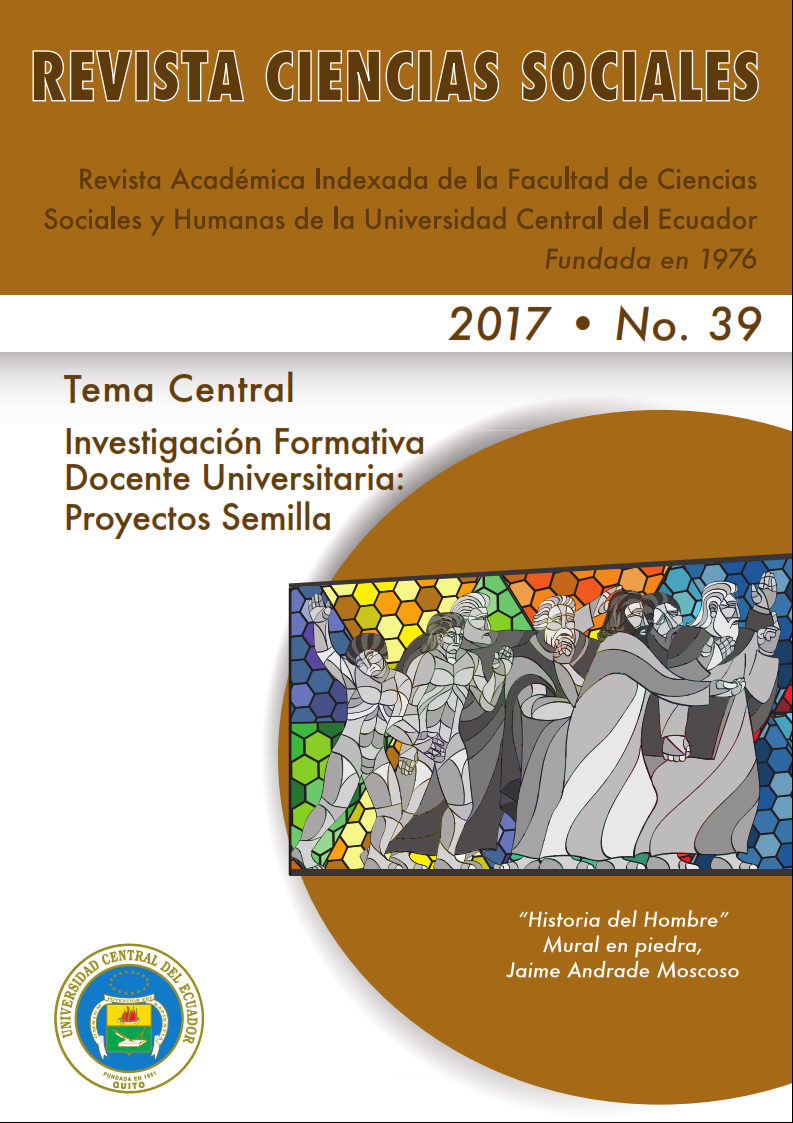Alfabetización no escolarizada en la conformación de las repúblicas latinoamericanas: elementos para matizar el debate
Resumen
El presente artículo aborda los modos cómo el establecimiento de sistemas estatales de educación pública en América Latina fue concebido como medio para fomentar el tipo de ciudadano que el paso del Antiguo Régimen hacia las repúblicas independientes requería como base para el sostén de la nueva fuente del
rigen del poder: la soberanía popular. A partir de datos sobre la evolución de las tasas de escolarización en enseñanza primaria y de las de alfabetización desde mediados del siglo XIX hasta mediados del siglo XX, se complejiza presunciones sobre distinciones que se habrían dado entre los distintos países de América, con un acento marcado con los países norteamericanos, influenciados por el credo protestante. Con ello, se encuentran elementos para matizar los medios de realización de la función política de la educación, escolarizada pero fundamentalmente no escolarizada,en la conformaciónde las repúblicas latinoamericanas
Descargas
Citas
Chust, M. y Frasquet, I. (2013). Tiempos de revolución. Comprender las independencias iberoamericanas. Madrid, España: Taurus / Fundación MAPFRE
López, O. (2008). Educación y género en la historiografía educativa. Historia de la Educación. Anuario, vol. 9, 147-167.
Martínez Garnica, A. (2007). La reasunción de la soberanía por las juntas notables en el Nuevo Reino de Granada. En Manuel Chust (Coord.), La eclosión juntera en el mundo hispano (págs. 286-333). México: Fondo de Cultura Económica / ColMex.
Martínez Garnica, A., y Quintero, I. (2009). La formación de los Estados republicanos en la Nueva Grabada y Venezuela. En Manuel Chust, y José Antonio Serrano (Eds.), La formación de los Estados-naciones americanos (1808-1830) (págs. 77-105). Madrid, España: Revista de Historia Contemporánea.
Miranda Bastidas, H., y Becerra, H. (2005). La Independencia de Hispanoamérica: Declaraciones y Actas. Caracas, Venezuela: Fundación Biblioteca Ayacucho.
Moliner Prada, A. (2008). “De las juntas a la Regencia. La difícil articulación del poder en la españa de 1808”, Historia Mexicana, vol. 58, núm. 1, 135-177.
Núñez, C. E. (1993). “Educación y desarrollo económico en el continente americano”. En Clara Eugenia Núñez, & Gabriel Tortella (Eds.), La maldición divina. Ignorancia y atraso económico en perspectiva histórica (págs. 359-380). Madrid, España: Alianza Editorial.
Ossenbach, G. (2001). “Génesis histórica de los sistemas educativos”. En José Luis García Garrido, Gabriela Ossenbach, & Javier M. Valle, Génesis, estructuras y tendencias de los sistemas educativos iberoamericanos (págs. 13-60). Madrid, España: Organización de Estados Iberoamericanos.
Rommen, H. (1948). “Francis Suarez”. The Review of Politics, vol. 10, núm. 4, 437-461.
Serrano, S. (2010). “Educar al nuevo soberano. Chile entre 1810 y 1814”, Bordón, Vol. 62, núm. 2, 29-38
---------- (2014). “Enseñanza de la historia e identidad nacional: Un vínculo a historizar desde la experiencia chilena, 1850-1930”, Encounters/Encuentros/Rencontres on Education, núm. 15, 209-222
Descargas
Publicado
Cómo citar
Número
Sección
Licencia
Política de acceso abierto
La revista Ciencias Sociales adhiere al modelo Acceso Abierto en el que los contenidos de las publicaciones científicas se encuentran disponibles a texto completo libre y gratuito en Internet, sin embargos temporales, y cuyos costos de producción editorial no son transferidos a los/las autores/as.
En ese sentido, no existe costo alguno para los/as autores/as en el envío o durante el proceso editorial, defendiendo el derecho a la información con equidad e iguales oportunidades de acceso.
Licencia y derechos de autor/a
Los autores conservan todos los derechos de publicación del artículo y conceden a la Revista Ciencias Sociales una licencia no exclusiva, intrasferible y sin regalías por duración ilimitada para su reproducción, distribución y comunicación pública a nivel mundial bajo una Licencia Creative Commons Atribución 4.0 Internacional (CC BY NC 4.0)


